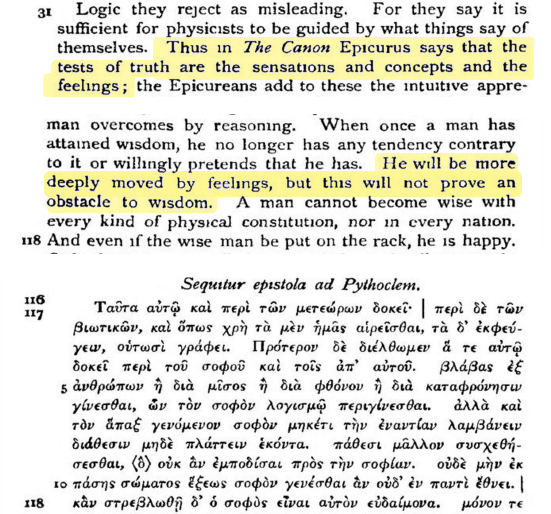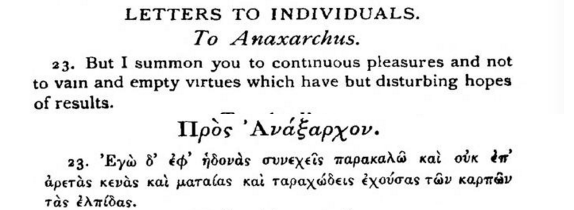Emotionlessness? The Epicurean View Is the *Deeper* Experience of Emotion!
Following along on the text I posted this morning, here is Bailey’s translation of the fragment where Epicurus spoke about “continuous pleasures.” If we have any experts on the Greek who care to comment, I would be interested in their opinion of Bailey’s translation, especially as to “disturbing results.” Dewitt’s view, if I recall correctly, is that Epicurus wanted to make the point that pleasure could be experienced continuously (uninterruptedly) as a means of disputing Plato and others, who argued that uninterrrupted pleasure was impossible.
If that was Epicurus’ intent, then it might be logical that when Epicurus refers to empty virtue producing only “disturbing hopes,” his emphasis was on how the results of such hopes are not continuous, and are often interrupted. So, for example, it might be helpful to think of this as saying “I summon you to uninterrupted pleasure, and not to vain and empty virtues, which have nothing but interrupted (occasional? speculative?) hope of results.
If so, that would call to mind the final words attributed to Brutus by Plutarch: “O wretched Virtue, thou wert but a name, and yet I worshipped thee as real indeed; but now, it seems, thou were but fortune’s slave.”
In sum, I think the emphasis of the thought is that the highest experience of pleasures is when we experience them smoothly and without interruption (meaning, without any mixture of pain), rather than focusing on the “smoothness” itself as sufficient description of the particular pleasures being experienced.


